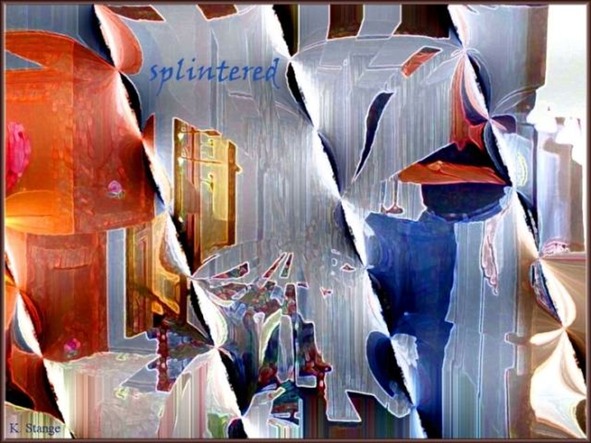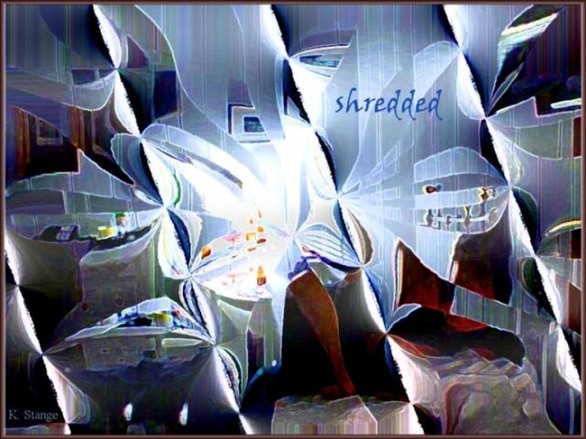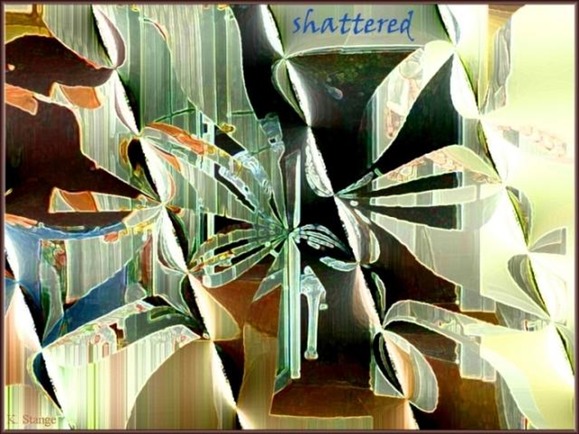Your Man Friday’s Ideas: Perverting The Young
Your Man Friday’s Ideas: Perverting The Young
It is amusing, albeit disturbing, to review some of the crazy ideas about evil influences on the young that once were widely accepted—and are still believed by some. Of course we all know that the current idea that video games inspire children to acts of violence is not like these old-fashioned ideas. Right?
Man Friday links here: http://kenstange.com/yourmanfriday/?p=1472
The Writer As Bad Guy
The Writer As Bad Guy
It would be nice if writers were all nice. Wishful thinking!
Here, just off the top of my head, is an Interesting brief list of significant writers I’ve enjoyed reading, but definitely do not qualify as nice guys.
- Arthur Rimbaud (druggie, gun runner)
- Paul Verlaine (attempted murderer of his teenage lover, Rimbaud)
- Gene Genet (repeatedly convicted thief and male prostitute)
- Marquis de Sade (sadist, misogynist)
- Louis-Ferdinand Céline (fascist and anti-Semite)
- Ezra Pound (fascist propagandist)
- Aleister Crowley (sex cult leader)
Of course these guys aren’t typical. And their good writing isn’t the result of their bad behaviour.
Art As Ennobling?
Art As Ennobling?
One theory about the value of art is that it ennobles us, makes us better people.
One of the issues I raise in my Psychology of Art class is the relationship of aesthetics to ethics. (Both are branches of the philosophical discipline called axiology, which deals with value judgements.)
The value many of us give to art is often justified by the claim that it enlightens and ennobles us. Like the idea that artists are better people, this idea is wishful thinking.
Hitler was a music lover, especially of the high art of opera. (And perhaps not coincidentally, he particularly liked Wagner, who was a notorious anti-Semite.)
Great art treasures are stolen from public museums and galleries to be hoarded in private by rich art connoisseurs.
A film that I’ve shown to my students that brilliantly explores this theme (as well as many other important ethical ones) is Stanley Kubrick’s Clockwork Orange. The young rapist and murderer who is the protagonist worships at the altar of Beethoven’s music, and in the end it is used to… (ah, but that would be a ‘spoiler’.)
Viewer discretion advised, ahem! This film may not ennoble, but it might enlighten.
Trailer here: http://www.youtube.com/watch?v=G7fO3bzPeBQ
Almost Done Embracing The Moon
Almost Done Embracing The Moon
I have finally finished proofing my next book, with my wife’s help.
The title, Embracing The Moon, was inspired by the legend that the great Chinese poet, Li Po, died by drowning, when—having consumed too much wine—he leaned out from his boat to embrace the reflection of the moon in the still water.
I’m almost done with Embracing The Moon, and I didn’t drown.
November Moon Rising
November Moon Rising
I expect my next book, Embracing The Moon to be out later this month—in time for Christmas. (Hint)
Embracing The Moon: Twenty Five Little Worlds is based on a series of my digital artworks entitled Tanka Spheres. Here is the book’s cover.
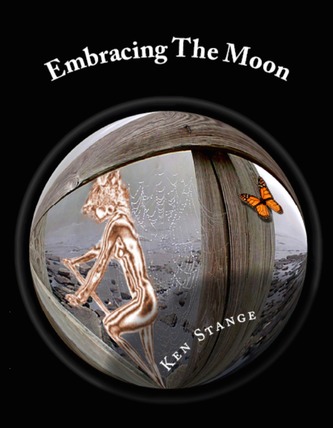
About The Full Moon
About The Full Moon
It is said that everything in the universe wants to be a sphere: sun, moon, and planets. It is the most natural and perfect of shapes.
The main body of Embracing The Moon consists of the “Twenty-Five Little Worlds”: a series of full colour, spherical artworks on the verso page with a related poem on the recto page. The poems all conform to the tanka verse form, chosen for its succinctness.
My Moon is rounded out with a prose introduction and expletory endnotes about each of the twenty-five ‘”worlds”.
Moonshine
Moonshine
Moonshine is the common term for very potent spirits, generally produced and consumed illicitly. Not a bad definition for good poetry, methinks.
Your Man Friday’s Ideas: Physicists’ Magical Mystery Tour
Your Man Friday’s Ideas: Physicists’ Magical Mystery Tour
These three entertaining, animated videos are exceptionally clear explanations of the fundamental and mind-altering facts that physicists have discovered about our wondrous universe. An hour and a half watching all of them is a crash course in the weird world of contemporary physics.
Man Friday links here: http://kenstange.com/yourmanfriday/?p=1481
Writing And Location
Writing And Location
When I was a kid growing up on the South Side of Chicago, I thought that to become a writer, I’d have to blow that grimy, boring, little town and go to experience a real city: New York!
I never made it to New York, except as a tourist. But I made it to Toronto, and lived there for several years, although I soon ended up here in North Bay. So what to make of the fact my first novel, Bushed, is set in Northern Ontario, and the book I’m currently writing is about growing up on the South Side of Chicago?
For a writer, every place they really get to know is a gold mine of material.
Writing In The North
Writing In The North
I know I’m not alone in feeling a bit of resentment with the presumption of those writers who think their ‘town’ is the literary centre of the universe and anyone living and writing outside of city limits has to be a hick and a hack. Gosh, could I be referring to Torontonians?
I shouldn’t have limited that observation to writers. It may be an unjustified belief, but most Ontario residents who don’t live in Toronto have the impression that Torontonians dismiss the rest of Ontario as a backwater.
So it’s amusing that when I moved to Toronto from Chicago, I thought of Toronto as a bit of a backwater. In The States we sometimes used the phrase—probably of Roman origin—“sent to the provinces” to mean exiled to the sticks. So here I was literally in a province. And I’d already thought of Chicago as culturally insignificant compared to New York.
Now Toronto is promoted as a “world class city” up there with New York or Paris or London. Well, the antics of Toronto’s mayor is certainly getting the city a lot international press, so perhaps it is an important city. International news agencies wouldn’t bother to cover similarly outrageous behaviour of the mayor of a small town.
Torontonians do, of course, have good reason to be proud of their city’s culture—if not of their stupid electorate that put their current mayor in office. And it does have a rich and thriving literary community. But writers can write anywhere, and many prefer to do so far from the madding crowd.
In North Bay, we do quite well, at least per capita. We have an independent bookstore, Gulliver’s. We have a literary group, The Conspiracy of Three, which has for more than three decades met once a month to hear new and established writers read from their works. We have a branch of The Writers Union of Canada (Canada’s professional writers’ organization): NOLL, as well as a number of poets that belong to the The League Of Canadian Poets.
Writers Coming To North Bay
Writers Coming To North Bay
North Bay residents should make note of upcoming literary events.
Tomorrow, this Tuesday, the noted poet James Deahl will be reading at the Conspiracy of Three. (November 12th, at 7:30 pm, at White Water Gallery, 122 Main West.) On the following day he will be give a talk about another noted Canadian poet, Alden Nowlan. (November 13th, 11:00 am, at Room 252, Nipissing University, 100 College Drive.)
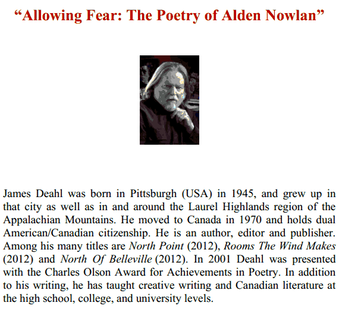
Then this Friday, the novelist, Wayne Grady will be reading from and discussing his novel, Emancipation Day. (November 15th, 7:30 pm, at Gulliver’s Books, 157 Main West).
Dark Days Are Upon Us
Dark Days Are Upon Us
The days are getting much shorter up here in the North. And the nights are getting much longer. This naturally elicits dark thoughts. But this morning I remembered the perfect antidote to such brooding. So I’m searching my chaotic personal library for Loren Eiseley’s The Night Country. This book is a masterpiece where Eiseley’s poetic prose lights up the darkest night.
“Consider the starry heavens: We see certain things most clearly after dark.” —Hippokrites
Another fine book by him is The Star Thrower.
Dark Writing
Dark Writing
A lot of writing is about the dark: the dark side of human nature, even the dark side of nature itself.
”A person afraid of the dark is superior to a person afraid of the light.” —Hippokrites
Fear of the dark is innate and entirely natural. So it takes exceptional courage to explore the darkness and shine a light on what is hidden there. Many of the great writers have done just that, and they are like the early explorers who dared to go where “there be dragons”.
Light Reading
Light Reading
It’s an interesting dead metaphor: light reading. I guess it’s intended to convey the same idea as ‘easy listening’: not challenging, not disturbing. It’s not about shining light on anything; it’s just not ‘heavy’. If you do too much of it, your mental and emotional muscles will atrophy. But then who wants always to be straining?
My personal preference is for light reading that still has a little heft to it. A lot of good genre fiction is like that. Good science fiction packs in ideas with its page-turning narrative. So do spy novels, such as those by John le Carré. Good crime novels, a very popular genre, often include wonderfully complex and interesting characters and intricate plots. And I should add that often a large part of the appeal is the quality of the prose. I’m a fan of James Lee Burke, for his description of New Orleans and the Louisiana bayou country often rises to the status of poetry.
It’s worth remembering that a lot of books now considered heavy, and that students consider a burden to lift, were once the popular, ‘light’ reading of large audiences. Both Dickens and Dostoevsky, for example, were both extremely popular novelists in their time, and both sometimes wrote what could be considered ‘crime’ novels. It seems fitting that it was a poet, Edgar Allan Poe, who actually invented the genre with his tale, “The Purloined Letter”.
Your Man Friday’s Ideas: That Ain’t Funny
Your Man Friday’s Ideas: That Ain’t Funny
One way of finding out how something works is by studying what breaks it; e.g., Minkowski discovered the cause of diabetes by removing the pancreas from dogs. So it seems reasonable to study what makes something funny by looking at why something isn’t considered funny—even if it is intended to be. The usual suspects are you having no sense of humour, not understanding it, or being offended by it. These explain why something will be funny to one person and not to another.
Man Friday links here: http://kenstange.com/yourmanfriday/?p=1492
About Writers Reading
About Writers Reading
It is always good to hear writers read from their own work, which is why book launches and public author readings are so appealing. Sometimes, of course, writers aren't the best presenters of their own work, for the same reason that playwrights aren’t qualified to be actors in their own plays. Nevertheless it is always worthwhile to hear writers’ own oral interpretations of what they wrote. This is true even if they mutter or stutter—or slur their words from partaking too much of that liquid courage an introvert sometimes needs to mount the stage. (I speak from very personal experience—as someone who has hosted some ‘interesting’ guest poetry readings here in North Bay.)
This week I heard three fine writers read from their works, and I’m pleased to report that they all had their presentation skills finely honed. Two fine, established writers, my old friend, the poet, James Deahl and his wife, Norma West Linder, both read at the Conspiracy Of Three on Tuesday night. That they both had taught to supplement their income was evident by their relaxed, polished delivery. The next morning James gave an excellent talk about another poet, Alden Nowlan at Nipissing University.
Then last night Wayne Grady read and discussed his novel Emancipation Day at Gulliver’s Bookstore. I know the book is great, and I know he is a good reader, but his presentation was exceptionally interesting, for after reading three sections of the novel, he discussed the backstory to the genesis of the book. And it is quite a story.
New Offering: Ethereal Minstrel
New Offering: Ethereal Minstrel
I’ve posted a new excerpt from one of my early books, Cold Pigging Poetics, on my Offerings page. Also I’m still offering some free digital versions of earlier books on this page.
Falling To Pieces
For some reason I was browsing through my third book, Nocturnal Rhythms and came across this introduction to the section entitled “Remnants”. It was yet another reminder of how our obsessions stay with us over the years, for it was more than three decades later that I did my digital art triptych, “Coming Apart”.
“Remnants, what is left from the daylight world. The vestiges of sanity. The shards from a shattered mirror still reflecting a wee bit of distorted light. The scraps of day montaged by night. I am an insomniac, and hence I am an expert on transitions. Each night I battle with wakeful reason, only to win a wakeful sleep. Unlike the natural sleeper, my nights are not blank sheets, for I dream with an intensity often greater than reality. At night, many hide in a dreamless sleep. I can't, so I don't. My lover can, and she does. For this I hate her. For this I could kill her. Meanwhile I suffer my own series of little deaths. Fragments of nocturnal life. Shards, splinters, memories distorted into immediate experiences.”
Your Man Friday’s Ideas: Making Art With Science
Your Man Friday’s Ideas: Making Art With Science
Science is related to art in two different ways. Doing science is actually an art, a fact unappreciated by the many people who naively assume it is a purely mechanical endeavour. Science, however, is also a tool for the making of art—something that is somewhat more widely appreciated. Here are some striking examples of visual art created with the tools provided by science.
Man Friday links here: http://kenstange.com/yourmanfriday/?p=1498
Art As Object, Live With It.
Art As Object, Live With It.
In this Golden Age of Egotism, you’ll hear people say art is a process, not an object. Nonsense! All of what is justifiably called art is always and ultimately an object. It may be transitory, as in such temporal arts as live performance, but it is always a thing out there in the world, no matter how briefly and irretrievably. Art is not about the artist doing something. It is about what is done. The artist is really irrelevant. What matters is what he or she has created.
Artists create art out of a vast and diverse variety of things. For some it is ideas from science or from a different art form or from history or from accidents. And yes, for some (especially writers), it may be from personal experiences and emotions. But it is what they make of these materials that matter, not the raw materials or the act of making. We need to disentangle the creator from the thing created, for the artist’s importance really is only as the delivery boy: it’s the package that matters.
Exposing Yourself
Exposing Yourself
I think for many writers, and certainly for me, one of the most uncomfortable aspect of being a writer is feeling exposed. Most writers are introverts, and most prefer to keep their private lives private. I know there are many notable and flamboyant exceptions, but because they get all the attention, their personae have shaped the stereotype. At least most of the writers I know are really quite shy and private people. They are closer on the spectrum to J.D. Salinger than Norman Mailer.
Yet publishing means making something public—and inevitably something about your self—even as a writer of fiction. It doesn’t help that people are almost always wrong in thinking they know the writer from what he writes, for their perception is usually disturbingly distorted. I can see why some writers hide behind a nom de plume.
The Poet In The Confessional
The Poet In The Confessional
The commonest form of poetry now is not the narrative, but instead the lyric. We assume that narratives are made-up stories, but most contemporary poetry sounds confessional—and some certainly is. But poetry too is fiction, as much so as a story. This is still true even it really is based on the poet’s own experiences and feelings.
But the common assumption now seems to be that a poem has to be autobiographical. No one assumes that the author of a detective story is a real detective, but even with a poem written from the third-person perspective, the reader too often assumes the protagonist is the poet.
I think one of the reasons for this is that almost everyone at some point in their life writes what they consider poetry, and it is virtually always highly personal and autobiographical. (And usually crappy poetry.) So they think that is what poetry is about. Their concern is with ‘expressing themselves’, not with creating a work of literature. I often think that the idea that ‘expressing your self’ is what art is all about has poisoned the well of art.
The Writer Inside The Writing
The Writer Inside The Writing
Would-be writers are always instructed to write about what they know. It’s not entirely meaningful advice. Of course if you try to write about something that you don’t know shit about, you’re just going to embarrass yourself. And it’s true that much good writing comes from within, from one’s own experiences and emotions, but—and this is important—manipulated and distorted. What makes it good writing is this creative manipulation and distortion of it to create something interesting to someone else.
The writer is always there inside the writing, but he or she has been encrypted. As a writer, I wish people would stop trying to crack the code. They just garble the message.
The Writer As Liar
The Writer As Liar
“Good writing is just convincing lying.” —Hippokrites
It is paradoxical, but lies are one path to a larger truth. Albert Camus said it well: “Fiction is the lie through which we tell the truth.”
Poet As Career, Profession, Or Condition?
Poet As Career, Profession, Or Condition?
“To be a poet is a condition, not a profession.” ― Robert Frost
I have a dislike for certain words as they relate to writers (and artists in general): particularly the words ‘profession’, ‘occupation’, and even ‘career’.
‘Professionals’ are often distinguished from what is considered to be the antonym, ‘amateurs’, by their being paid for what they do. But there is something wrong about considering Emily Dickenson unprofessional (an amateur!?), while the writers for Hallmark Card doggerel could be called professionals. I suppose that if you asked these greeting card versifiers what is their occupation, they could justifiably say that they’re professional writers. But for the serious writer, writing is not an occupation; it’s a preoccupation—even an obsession, a case of possession.
It is shameful, but for most writers (and again what I say applies to every kind of artist) it is unrealistic to expect to make a good living just from their work. Yes, some few do, and an even fewer get downright rich. (For those who are exclusively poets, those few and fewer are a helluva lot fewer.)
I like the word ‘vocation’. It means a calling, a dedication to what is a worthy endeavour. Its antonym is ‘avocation’, meaning merely a hobby. Well, being a real writer is a calling, as is being, for example, a dedicated teacher or scientist. It’s not just a hobby or a job. One knows it is what one simply has to do. One may not be rewarded appropriate to the value of what one does, but it is the intrinsic reward that acts as compensation.
It has to be acknowledged that sometimes one isn’t even that good at what one is ‘called’ to do—although commitment and dedication make that less likely than when one is just working for a cheque. That is why writers almost never retire. They’re not doing what they’re doing so they have enough money stashed away to not have to do it anymore.
This may be why even the word ‘career’ bothers me, because it implies, at least for me, a systematic progression up the scale of rankings and ratings—and income. Every time an artist deviates from previous patterns to creatively investigate something new, it seems to be called ‘a bad career move’. It seems very odd to talk about Emily Dickenson’s ‘career’—or Van Gogh’s.
But what really matters has nothing to do with describing the writer’s life. What matters are the writings produced. Better to simply speak of a writer’s oeuvre.
Your Man Friday’s Ideas: Hearing Voices
Your Man Friday’s Ideas: Hearing Voices
It seems the reason chimps can’t talk may have more to do with the structure of their mouths and the location of their vocal chords than with their brains. There is plenty of evidence that they can communicate words, perhaps even simple sentences, using sign language or ‘icon typing’. But for us, our voices have always been our primary mode of communication, and our voices convey more than the written word. They overlay and enrich the words with emotion. Tone matters. Tone communicates. “Your so smart!” can easily mean the opposite, depending on the tone of voice. Those silly email emoticons are a lame attempt to compensate for the inadequacy of the words alone to convey tone; for example, to make it clear whether or not one is being sarcastic. Skilled writers know the tricks that effectively convey tone, but even they are often misinterpreted. Voice matters to us. Even aside from tone, pitch and accent bias our response to a voice.
Man Friday links here: http://kenstange.com/yourmanfriday/?p=1502
The Writer’s Voice
The Writer’s Voice
Last week I had lunch with a group of writers in the local chapter of The Writer’s Union. We meet maybe once a month at most, and there’s nothing formal or even particularly literary about these get-togethers. I think we do it just to be in the company of other people who share and understand the experience of spending a lot of time alone writing.
This is probably why there are ‘cop bars’ where the topic of conversation I suspect is more often about sports than their job. It’s just comfortable being around those who share a way of life that ‘civilians’ rarely understand.

